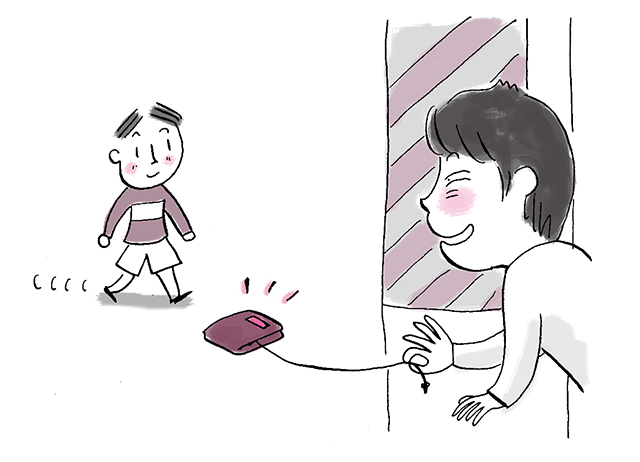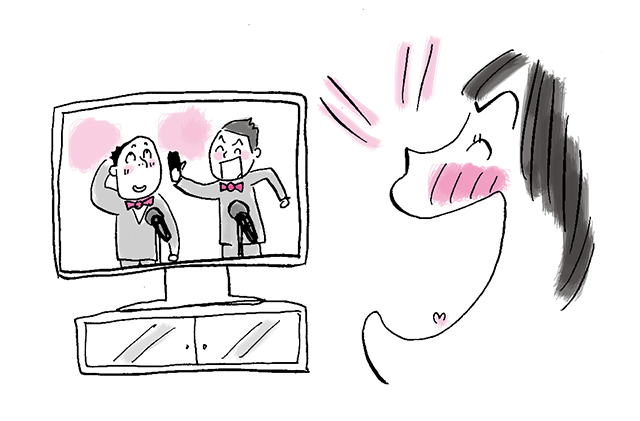Expressions for Laughter

These days, people have begun to use emoticons in emails to show that they are smiling. In Japanese there are expressions to convey laughter through words. For example, “Kare wa ‘hahaha’ to waraimashita.” (He laughed “hahaha.”) “Hahaha” signifies cheerful laughter. “Hihihi” is used when the laughter is rather weird. “Fufufu” is an expression used by women to indicate laughter bubbling up.
“Hehehe” is a laugh used mainly by men when they’re playing tricks and such. “Hohoho” is used to express a woman’s graceful laugh. As you see, the syllables of “ha, hi, fu, he, ho” are used to express laughter.

Besides these syllables beginning with ‘h’ or ‘f,’ there are other words used to express laughter. “Kusu” is used when a chuckle slips out; “kusukusu” is used to indicate that the chuckle is continuous. We say “niya” or “nita” to demonstrate that a single person is enjoying something without making a noise. “Niko” is used when one is so overjoyed that one’s cheek becomes slack, and “nikoniko” when that smile continues.
“Geragera” is used when one loudly bursts out laughing. We say “kerakera” when you burst out laughing in a high pitched voice. These expressions are often seen in Japanese comic books.
